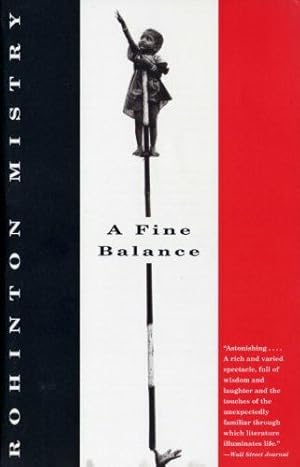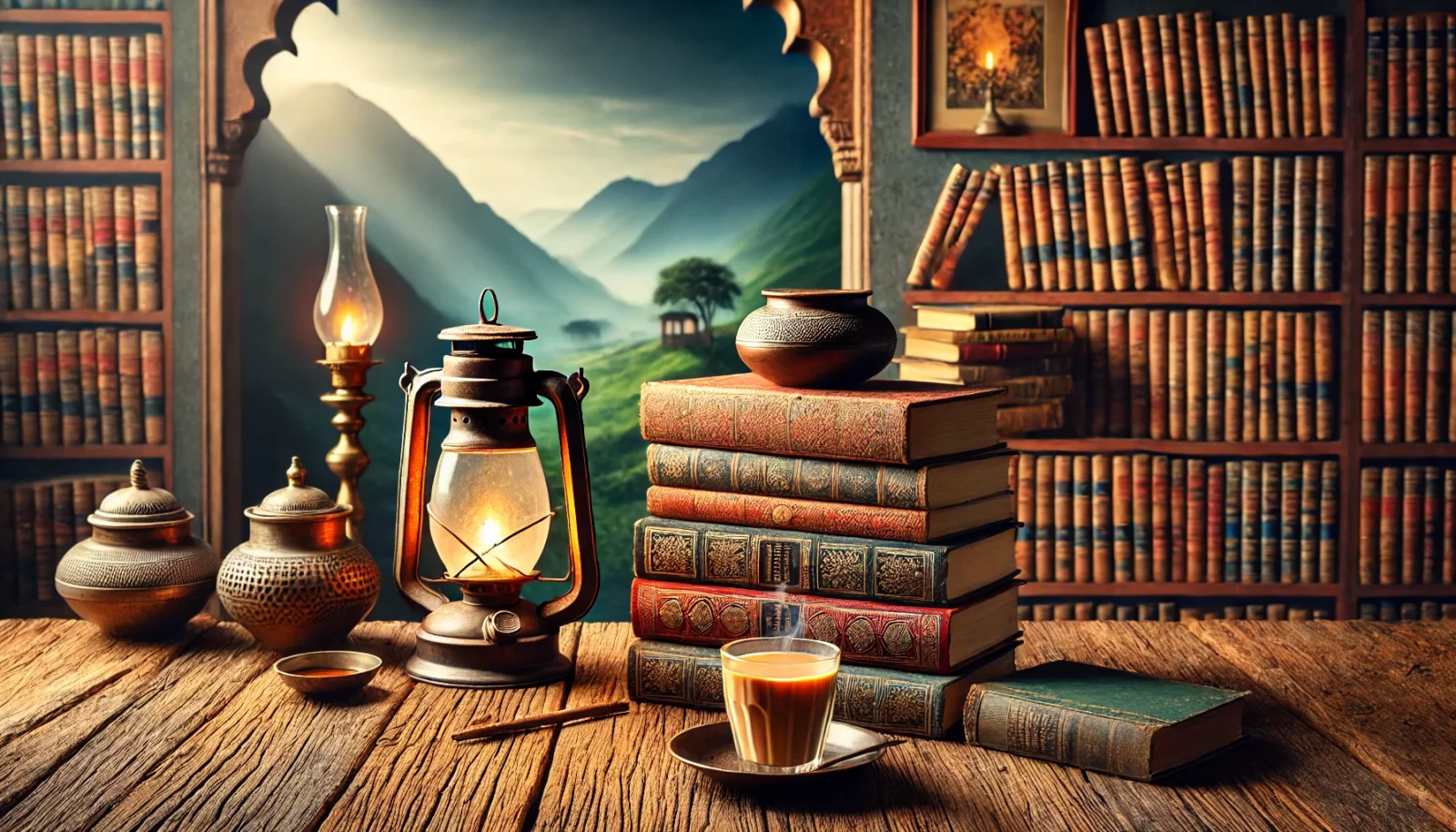India’s literary tradition is as diverse and vibrant as the country itself. With over 22 official languages, the vast array of Indian literature offers a stunning variety of perspectives, genres, and writing styles. Whether you’re an avid reader of classic novels or a fan of contemporary Indian literature, there’s something for everyone in the world of Indian books.
In this post, we explore the top 10 Indian novels you must read, covering a broad spectrum of themes, from historical fiction to modern-day narratives. These novels not only reflect the rich cultural heritage of India but also delve into universal themes like identity, freedom, love, and politics. Whether you’re a new reader or a seasoned bookworm, this list will help you explore the best of Indian fiction.
Also Read:- The Best CEO Magazine in India for Business Leaders
1. “Midnight’s Children” by Salman Rushdie
Winner of the Booker Prize in 1981, “Midnight’s Children” is an iconic novel that blends history, magic realism, and political commentary.
Salman Rushdie’s masterpiece, Midnight’s Children, follows the life of Saleem Sinai, born at the exact moment of India’s independence on August 15, 1947. Through the life of Saleem, Rushdie intricately weaves the tumultuous history of post-independence India, touching on themes of identity, migration, and the impact of historical events on personal lives.
The novel is a celebration of India’s cultural diversity, and its magical realist elements create an enchanting, albeit surreal, narrative that mirrors the complexity of the Indian subcontinent.
Why You Should Read It:
- Magical realism and historical depth
- Exploration of India’s partition and independence
- Lush prose and storytelling
2. “The God of Small Things” by Arundhati Roy
Winner of the Booker Prize in 1997, Arundhati Roy’s debut novel is a beautiful exploration of family, love, and tragedy set in Kerala.
Set against the backdrop of Kerala’s picturesque landscape, The God of Small Things tells the story of two twins, Ammu and Velutha, whose lives are irrevocably changed by the rigid caste system and social taboos of the time. The novel is non-linear, with the narrative weaving between the past and present, offering a poignant commentary on the intricacies of love, loss, and societal expectations.
Roy’s rich prose and her ability to create vivid, multi-dimensional characters make this a must-read for anyone looking to delve into the emotional and psychological complexity of Indian society.
Why You Should Read It:
- Masterful narrative style
- Deep cultural insights into Kerala
- Strong character-driven storytelling
3. “A Fine Balance” by Rohinton Mistry

Set in post-independence India, “A Fine Balance” is a sweeping, heart-wrenching novel about the lives of four unlikely companions.
Rohinton Mistry’s A Fine Balance takes readers on a journey through the lives of four individuals who are brought together during a period of political turmoil in India. The novel examines themes of caste, poverty, and the effects of political upheaval, with a focus on the human struggle to survive against overwhelming odds.
Mistry’s skillful portrayal of life during the Emergency (1975-77) provides an emotional and thought-provoking narrative, demonstrating how ordinary lives are affected by extraordinary circumstances.
Why You Should Read It:
- Powerful portrayal of socio-political history
- Heartfelt exploration of human suffering and survival
- Rich character development
4. “The White Tiger” by Aravind Adiga
Winner of the Man Booker Prize in 2008, The White Tiger is a gripping story of social mobility, crime, and corruption in modern India.
Adiga’s debut novel is a dark, satirical commentary on India’s class system. Through the eyes of Balram Halwai, a poor rural driver who rises to power through cunning and crime, the book examines the stark contrast between the wealthy elite and the marginalized poor in contemporary Indian society. The White Tiger offers an unflinching critique of India’s socio-economic inequalities while giving voice to the oppressed.
The novel’s fast-paced narrative and biting social commentary make it an unforgettable read.
Why You Should Read It:
- Dark, satirical take on modern India
- Exploration of corruption and class disparities
- Compelling, page-turning narrative
5. “The Inheritance of Loss” by Kiran Desai
Winner of the Booker Prize in 2006, The Inheritance of Loss explores themes of immigration, colonialism, and identity.
Set in the remote Himalayan town of Kalimpong, The Inheritance of Loss follows a group of characters who are caught between the world of colonialism and the post-independence reality. At its heart, the novel explores the complexities of identity, belonging, and the aftereffects of British rule on both Indians and expatriates.
Desai’s exquisite prose and her ability to handle sensitive topics with nuance make this a poignant read for those interested in post-colonial literature.
Why You Should Read It:
- Sensitive exploration of post-colonial themes
- Beautiful prose and character depth
- Strong narrative on migration and displacement
6. “Shantaram” by Gregory David Roberts
Based on the author’s own experiences, Shantaram is an epic novel about love, crime, and redemption in the underworld of Bombay.
Although not technically an Indian author, Gregory David Roberts’ Shantaram offers a raw and gripping depiction of Bombay (now Mumbai). The story follows Lin, an Australian fugitive, who escapes to India and immerses himself in the city’s criminal underworld. From the slums to the bustling streets, Roberts paints an immersive picture of life in Bombay, capturing the city’s complexities and contradictions.
This novel is as much a love letter to India as it is a thrilling narrative of adventure and survival.
Why You Should Read It:
- Epic storytelling and vivid world-building
- Deep exploration of Indian society and its contrasts
- Fascinating, character-driven plot
7. “Train to Pakistan” by Khushwant Singh
One of the most haunting novels about the Partition of India, Train to Pakistan offers a poignant and powerful account of the human cost of the divide.
Khushwant Singh’s Train to Pakistan tells the heart-wrenching story of a village on the border of India and Pakistan during the Partition in 1947. As the violence escalates and the population is divided, the lives of the village’s inhabitants are irrevocably changed. The novel captures the brutality, confusion, and devastation that followed the partition, offering a personal view of a historical event that shaped the modern subcontinent.
Singh’s realistic portrayal of the human cost of political decisions makes this a must-read for history enthusiasts and those interested in Partition-era literature.
Why You Should Read It:
- Unflinching portrayal of Partition
- Gripping and tragic narrative
- Emotional depth and historical significance
8. “The Palace of Illusions” by Chitra Banerjee Divakaruni
In this beautifully written novel, The Palace of Illusions retells the story of the Indian epic Mahabharata from the perspective of Draupadi.
Chitra Banerjee Divakaruni’s novel reimagines the world of the Mahabharata through the eyes of Draupadi, the princess who is central to the epic. It blends mythology, history, and personal reflection to offer a feminist take on one of the most iconic stories in Indian literature. The novel’s lush prose and rich symbolism create a compelling narrative that explores themes of love, power, betrayal, and destiny.
Why You Should Read It:
- Feminist retelling of the Mahabharata
- Beautiful, poetic prose
- Insightful exploration of myth and history
9. “The Great Indian Novel” by Shashi Tharoor
This satirical take on India’s history and politics offers a humorous and clever retelling of the Mahabharata in a modern context.
In The Great Indian Novel, Shashi Tharoor brings together the ancient epic of the Mahabharata and the political history of modern India. The novel is a satire that juxtaposes the two, using the characters and themes of the epic to reflect on contemporary Indian society. It’s an intelligent and witty exploration of India’s political and social landscape, providing keen insights into the nation’s evolution.
Why You Should Read It:
- Clever political satire
- Fusion of mythology and modern history
- Thought-provoking and witty narrative
10. “Sea of Poppies” by Amitav Ghosh
Part of the Ibis Trilogy, Sea of Poppies is a sweeping historical novel set against the backdrop of the opium trade during British colonial rule.
Amitav Ghosh’s Sea of Poppies is set in the early 19th century during the height of British colonialism. The novel revolves around a diverse cast of characters from different walks of life who are brought together on a ship called the Ibis. Ghosh’s detailed exploration of colonial history, the opium trade, and the social fabric of the time makes this a fascinating read for history buffs.
Why You Should Read It:
- Rich historical setting
- Multi-layered characters and narrative
- Exploration of colonial India
Conclusion
India’s literary landscape is vast, diverse, and rich with history, offering stories that span centuries, cultures, and philosophies. From the gripping historical narratives of Midnight’s Children and Train to Pakistan to the contemporary explorations of caste, identity, and survival in The White Tiger and A Fine Balance, Indian novels have the power to captivate, educate, and challenge readers. Each of the top 10 Indian novels you must read not only offers unique storytelling but also provides a window into the complexities of Indian society.
Whether you are drawn to magical realism, historical fiction, or narratives steeped in mythology, there’s an Indian novel for every reader. These books will not only deepen your understanding of India’s history and culture but also leave you with universal themes of love, loss, and the enduring human spirit.
So, grab one of these titles, dive into the world of Indian literature, and experience stories that are as diverse and compelling as the country itself. Happy reading!










Leave a comment